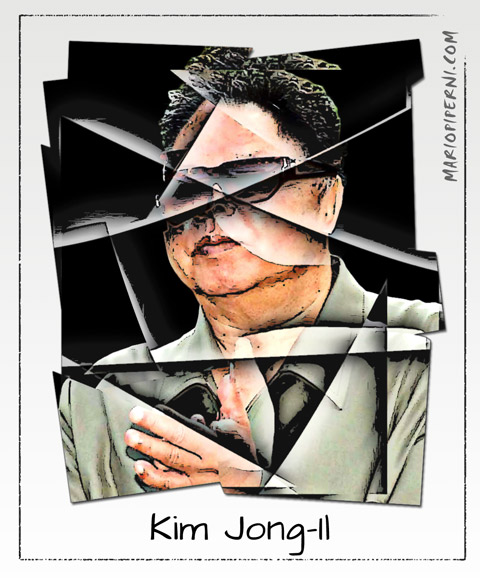Kim Jong-Il’s Korea – A Human Rights Hell On Earth
Human Rights Watch on the death of North Korea’s tyrannical sociopath, Kim Jong-Il.
Kim Jong-Il exercised total control for 17 years over one of the world’s most closed and repressive governments. He was responsible for the deaths of hundreds of thousands, and perhaps millions, of North Koreans through widespread preventable starvation, horrendous prisons and forced labor camps, and public executions. Kim family rule, starting with his father, Kim Il-Sung in 1948, is projected to continue with Kim Jong-Il’s son, Kim Jong-Un.
“Kim Jong-Il will be remembered as the brutal overseer of massive and systematic oppression that included a willingness to let his people starve,” said Kenneth Roth, executive director of Human Rights Watch. “When he assumes leadership, Kim Jong-Un should break with the past and put the human rights of North Koreans first, not last.”
Kim Jong-Il’s legacy includes the fate of the tens of thousands who have died in the kwanliso camps for alleged enemies of the state, where today an estimated 200,000 North Koreans continue to work and die in conditions of near starvation and brutal abuse. In this system, the sins of one member of the family condemn an entire generation to imprisonment. A steady stream of former prisoners who escaped North Korea have testified to Human Rights Watch and other organizations how even children born inside such camps grow up to inherit their parents’ prisoner status.
Leaving the country without official permission is considered an act of treason, punishable by torture and imprisonment, yet tens of thousands have fled in the last two decades, and thousands more continue to risk their lives every year to escape.
“North Korea under Kim Jong-Il has been a human rights hell on earth,” said Roth.
Any hope that an Arab Spring-like uprising might take root in North Korea is dimmed by the fact that North Koreans are not connected to the world to the same degree as people in the Middle East. There is no broadband network available in North Korea and access to satellite Internet is limited thereby making social networking sites like Facebook and Twitter unavailable to North Koreans. Furthermore, the government will certainly make more restrictive whatever limited channels of communication do presently exist in the country.
Sadly, the baton of oppressiveness will likely pass from monster to son without a whimper from the citizenry of North Korea







